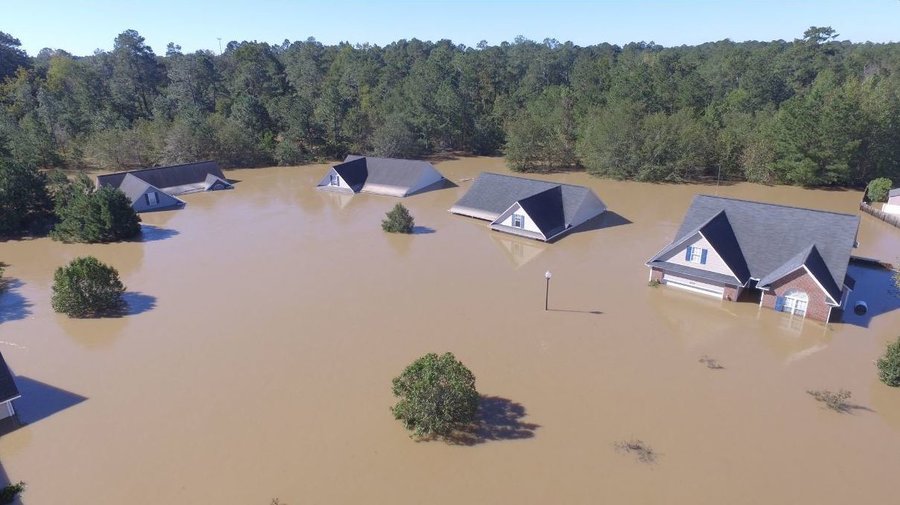Is it safe to shoot ammo that’s been exposed to water? Depends… Read more!
by Jason Hanson
In 2016, the U.S. experienced 19 major floods, which was a record number for a single year. 2017 was been a busy year for flooding as well, especially with Hurricane Harvey and Irma. Combined estimates of the damages of the two recent hurricanes will most likely exceed 150 billion dollars.
The fact is, flooding can occur in every state in the U.S. and floods kill more people each year than tornadoes or hurricanes. Now, with the amount of flooding we have seen this year there is no question that many people in Texas and Florida have lost personal belongings, likely including guns and ammo.
The reality is, it doesn’t have to be a natural disaster for you to experience flooding in your home since a broken water pipe or an overflowing toilet can also lead to a messy situation. Considering the number of gun owners who have most likely experienced flooding recently it leads to the question of whether or not ammunition that has been submerged in water can still be used?
To be clear, there is a big difference between ammo that has been used while you’re training outdoors in the rain or snow compared to ammo that has been sitting in a basement completely submerged in water.
I have trained outdoors in all types of weather from rain to snow and I’ve never had these elements affect my gun or ammo. Of course, I always give my firearms a good cleaning after training so as long as you do this as well, you shouldn’t have any issues when training in wet weather.
For ammunition that has been under water for any amount of time there are a few different issues that could potentially arise. The problem is, there are so many different factors when flooding occurs that it’s difficult to give a one fits all type of answer. For example, the depth of the water, the amount of time the ammo was submerged, and whether the water had contaminates can all affect the ammunition.
Nevertheless, once you remove the ammo from the water you would obviously want to dry it out. However, during this process the ammo could be damaged or deteriorate even more than what occurred when it was in the water.
In addition, you face the risk of a weaker powder charge when you fire the weapon, which could mean there isn’t enough pressure to push the bullet out of the barrel. In other words, you could pull the trigger and the bullet might only move slightly, then, if you pulled the trigger again while the bullet was still stuck you could seriously injure yourself.
Perhaps, the most critical issue with ammo that has been submerged in water is that it could fail to fire for a number of different reasons caused by the water. If you’re like me and carry a concealed firearm everywhere you legally can, then you probably don’t want to risk using ammo that may or may not fire.
Don’t get me wrong, I realize a malfunction can happen with any ammo but that’s why I train to clear the malfunction and move to the next round in my firearm if I need to defend myself. The thing is, I wouldn’t bet my life on ammo that has been submerged in water.
Unfortunately, the problem is there is really no way to tell which ammo is safe to use and which is completely damaged. Basically, you can’t inspect every round because you never really know what kind of internal damage has taken place.
Also, I’ve heard some people mention that the primers in their ammo are sealed so water wouldn’t be able to get in. However, I still wouldn’t risk firing the ammo because there is truly no way to check the primer to make sure its safe.
In contrast, I understand that ammo can be incredibly expensive and if you have thousands of rounds stocked up for an emergency you are no doubt losing a ton of money by getting rid of the ammo. However, I would never risk firing a round that could cause injury or death to myself or someone I was training with or might not work when I needed it to save my life.
Lastly, if you happen to have ammunition that was damaged by flooding I would contact your local police department and ask them if they are able to dispose of ammo.
CHECK OUT AMMO STORAGE SOLUTIONS HERE
Jason Hanson is a former CIA Officer and New York Times bestselling author of Spy Secrets That Can Save Your Life. To get a free copy of his book, click HERE.








